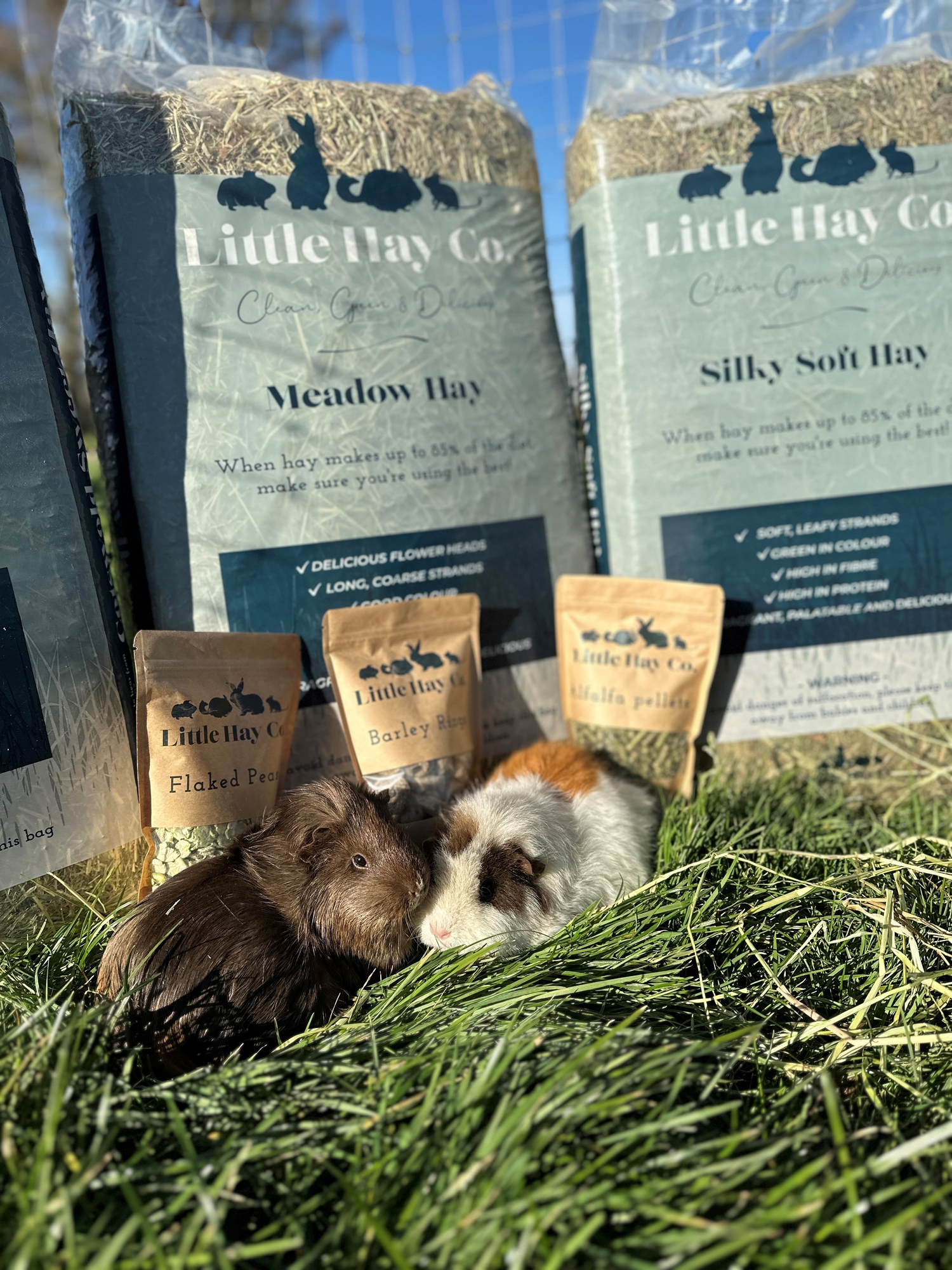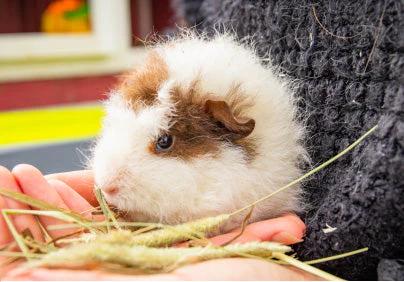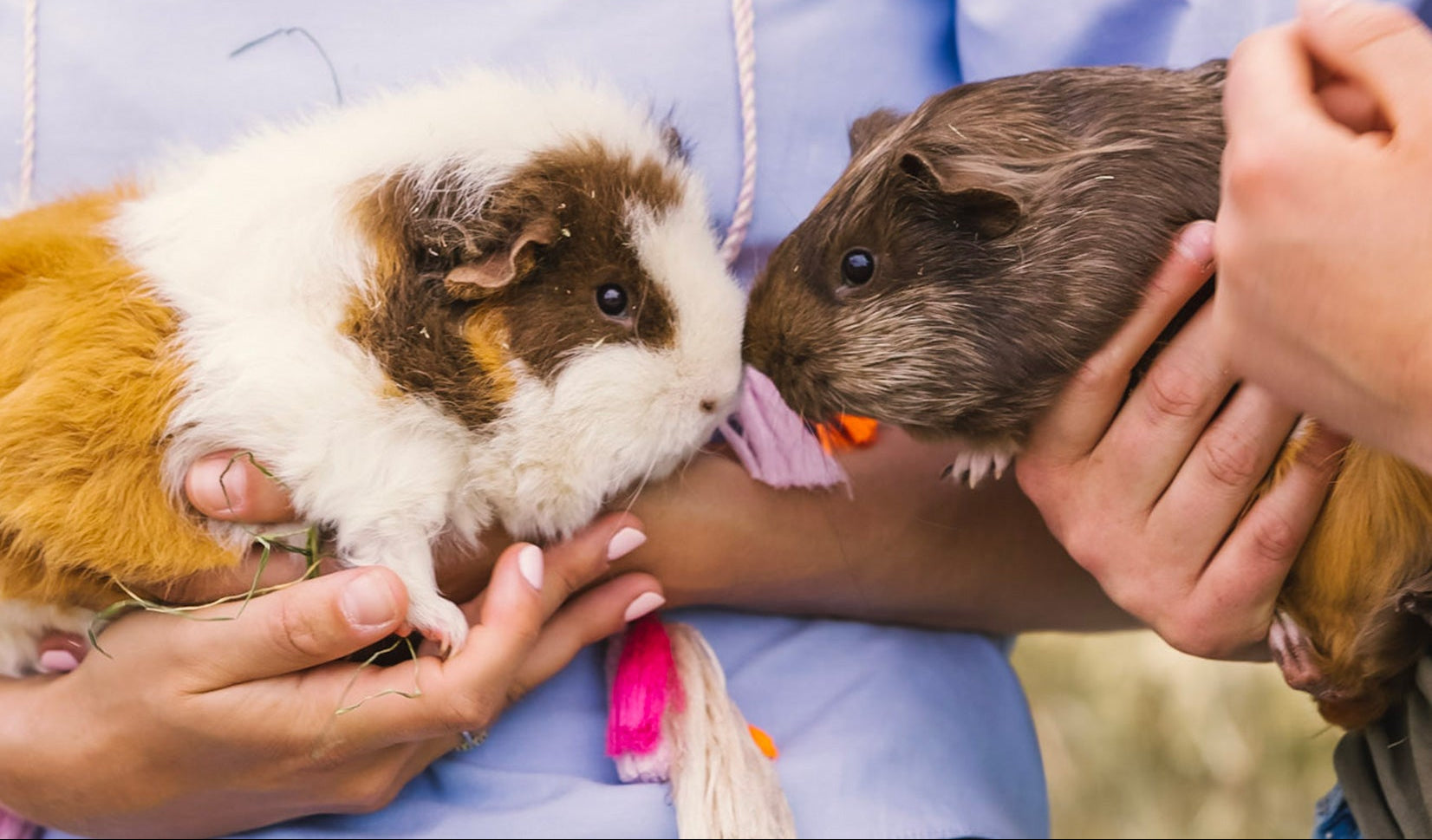For small herbivores such as rabbits, guinea pigs and chinchillas, there is no such thing as too much hay! Well, that was a quick blog to write! Just kidding! It is true that you cannot overfeed small herbivores hay however that doesn't help a rabbit parent who isn't sure if their per is eating enough hay, does it! So let's go through each of our furry friends and work out how much hay is "enough" hay for them!
Remember with Guinea pigs, Rabbits and lots of other small herbivores, it is important to keep fresh hay available at all times, most of these animals are active throughout the day and night so they should be able to chow down on a pile of hay whenever they fancy it.
Hay doesn't just help with the rabbits digestive system but it also ensures good dental health, ensuring their constantly growing teeth are keep short. Premium quality hay is paramount for good dental and digestive health for both Guinea pigs and rabbits.
Rabbits should eat a diet made up of 75% -85% hay. To encourage this, we recommend choosing a couple of hay varieties to ensure they are eating plenty of hay to get their daily requirements. Rabbits need a pile of hay around the same size as themselves each day as a minimum requirement.
Guinea pigs need around 85% of their diet to be made up of hay. For adults this is around 90-100 grams per day or a pile around the same size as themselves. Hay should never be restricted for guinea pigs so if you notice they are running low, just top it up again to ensure they have plenty at all times. They can't eat too much of it!
Like Guinea pigs and rabbits, Chinchillas require hay to maintain their teeth as they continuously grow throughout their lives. Chinchillas should eat a diet made up of 95% hay! It is important to choose low calcium hay for Chinchillas and also ensure they have plenty of access to hay overnight. Chinchillas will have long periods of eating, generally overnight so before you go to bed each night it is important to ensure your pet has plenty of hay stocked up for them.
A Degu's diet should comprise of 60% fibre and their main fibre source should be Timothy or Meadow hay. For Degu's this equates to around 5-10g of hay per day which is about two tablespoons. Degu's are prone to diabetes so it is important to feed a hay which is low in sugar as well as choosing a pellet which does not contain molasses or other ingredients which are sugar based such as honey.
Adding hay to a chicken's diet can help ensure they are getting the nutrients they need. Offer chickens 1-2 inches of alfalfa hay per day to add variety to their diet. Timothy hay is not a suitable hay for chickens.
Mice, Rats & Hamsters
Mice, rats and hamsters don't eat hay however they will enjoy hay in their enclosure. It can be used for bedding, their bathroom or even for hiding their food in as a source of enrichment.
Now you know what your pet needs, why not hop on over to our shop and pick up all your hay essentials!













